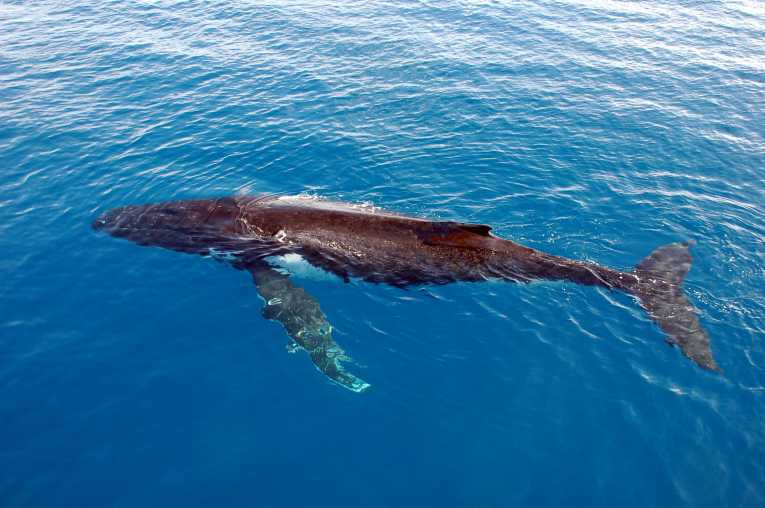The songs of humpback whales spread across the oceans like contagious pop songs, according to an online study published today in Current Biology. And not only do humpback whales from the Pacific pass on 'catchy' tunes to their peers in just one breeding season - they often mix-and-match elements of last-season's hits with breaking new music, to create 'remixed' versions of the originals.
The study of the ebb-and-flow of humpback whale song - making was conducted over a decade, by University of Queensland researchers, with help from members of the South Pacific Whale Research Consortium. The idea was to search for patterns in whale songs, and to see how songs evolved over time.
What they found was that new whale songs make a big initial splash, spreading across the Pacific quickly, so that all males are soon singing from the same sheet. Then, each breeding season, new 'riffs' are thrown in, which mash up last year's big hit - and these also get picked up and passed out across the water waves. Occasionally the song-sheet is cleared completely, when a totally new song catches on 'big time'.
It is the male humpback whales that are the submarine vocalists, but the reasons for them singing have not yet been pinned down. It is almost certainly a mating display - but whether to impress the girls, or to scare away competing males is uncertain. But the push to innovate in song-making may start with the need to stand out with a unique musical 'style'.
Ellen Garland, a graduate member of the team, describes the dynamics of the whale's singing as a tug-of-war between being an individual and conforming.
''We think this male quest for song novelty is in the hope of being that little bit different and perhaps more attractive to the opposite sex,'' she said. ''This is then countered by the urge to sing the same tune, by the need to conform.''
The trends in singing also seem to move one-way only - from Australia in the west to Polynesia in the east - and the authors sees this as being because of the greater populations in the western Pacific, which dominates the cultural evolution. In fact, the obvious evidence of culture being passed over vast distances, from individual to individual, is a first for studies in the animal kingdom - outside of man.
''Our findings reveal cultural change on a vast scale,'' said Garland. It would seem that mankind is not alone in swaying to the rhythms of changing musical fashion.
Credit: Current Biology, Garland: Humpback whales have their own version of the hit single, according to a study reported online on April 14 in Current Biology, a Cell Press publication. At any given time within a population, male humpbacks all sing the same mating tune. But the pattern of the song changes over time, with the new and apparently catchy versions of the song spreading repeatedly across the ocean, almost always traveling from west to east.










